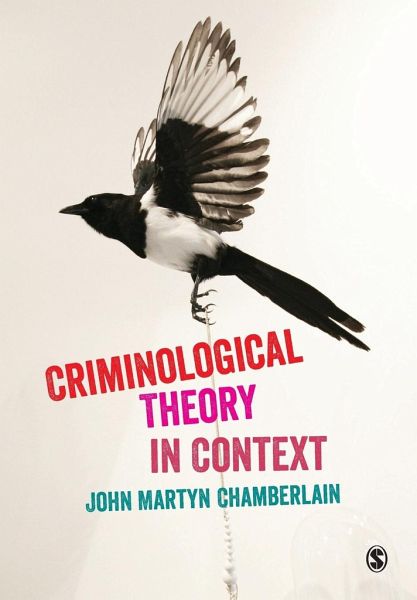
Criminological Theory in Context

PAYBACK Punkte
17 °P sammeln!
This book provides a lively, concise and definitive introduction to the study of the causes of crime. Authoritative yet accessible, it offers a guide to the historical development of criminology as an academic discipline and in doing so:presents an overview of a range of different theories of crime, including classical, biological, psychological and sociological approaches analyses the strengths and weaknesses of each theory discussed provides chapter overview boxes and key summary points helps you to take your studies further with self-study tasks and suggestions for further reading. In cover...
This book provides a lively, concise and definitive introduction to the study of the causes of crime. Authoritative yet accessible, it offers a guide to the historical development of criminology as an academic discipline and in doing so:
presents an overview of a range of different theories of crime, including classical, biological, psychological and sociological approaches analyses the strengths and weaknesses of each theory discussed provides chapter overview boxes and key summary points helps you to take your studies further with self-study tasks and suggestions for further reading.
In covering key theoretical positions and placing them in their historical context, Criminological Theory in Context is perfect for students taking introductory courses in criminological theory.
presents an overview of a range of different theories of crime, including classical, biological, psychological and sociological approaches analyses the strengths and weaknesses of each theory discussed provides chapter overview boxes and key summary points helps you to take your studies further with self-study tasks and suggestions for further reading.
In covering key theoretical positions and placing them in their historical context, Criminological Theory in Context is perfect for students taking introductory courses in criminological theory.




